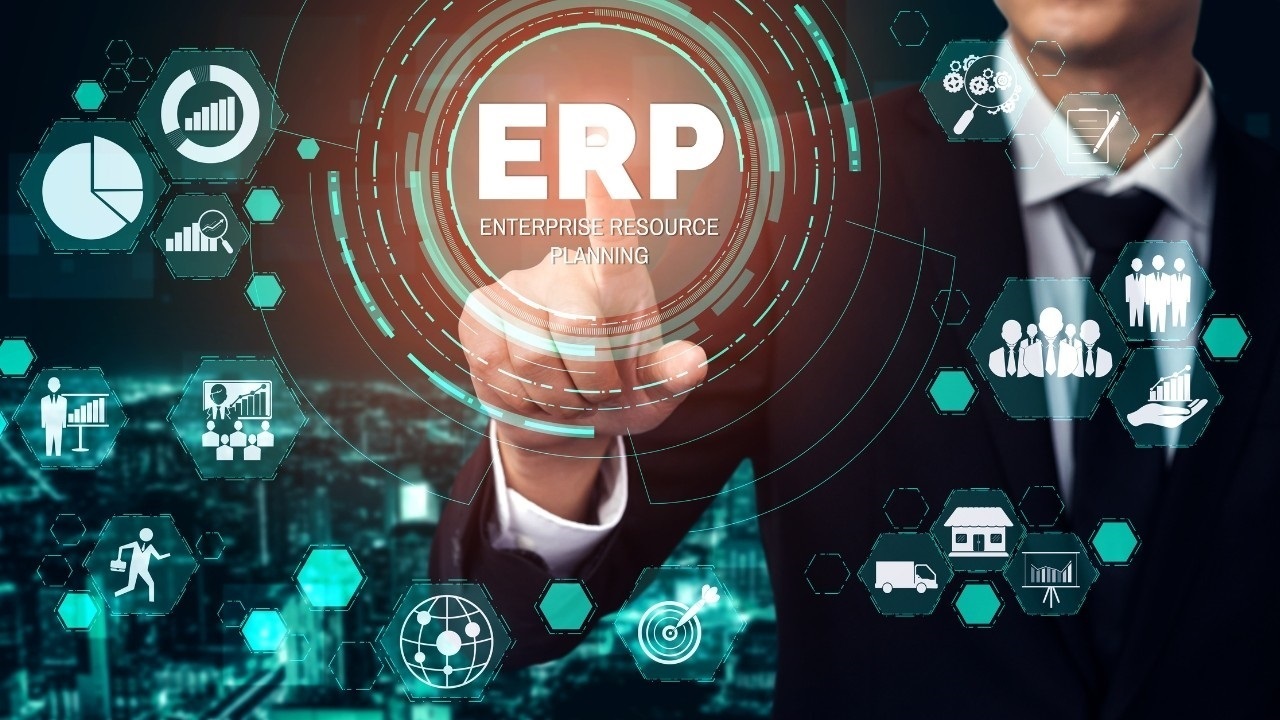Navigating Tomorrow: Trends Shaping the Future of ERP Systems
Introduction
In the dynamic landscape of enterprise resource planning (ERP) systems, staying ahead of the curve is essential for businesses aiming to remain competitive.
As technology continues to evolve at a rapid pace, so too do the trends that shape the future of ERP systems. Let’s delve into some of these transformative trends and explore how they are reshaping the ERP landscape.
Cloud Adoption
The migration to cloud-based ERP Implementation has been gaining momentum in recent years, and this trend shows no signs of slowing down.
Cloud-based ERP offers scalability, flexibility, and accessibility like before, allowing businesses to streamline operations and reduce costs.
With the increasing reliability and security of cloud infrastructures, organizations are increasingly turning to cloud ERP to drive innovation and agility in their operations.
AI and Machine Learning Integration
Artificial intelligence (AI) and machine learning (ML) are revolutionizing the capabilities of ERP systems. By harnessing the power of AI and ML algorithms, ERP platforms can analyze vast amounts of data in real time, providing actionable insights and predictive analytics to support decision-making processes.
From demand forecasting to predictive maintenance, AI-driven ERP systems are empowering businesses to optimize efficiency and drive growth.
IoT Integration
The Internet of Things (IoT) is transforming how ERP systems interact with physical assets and processes. By connecting devices, sensors, and equipment to the ERP ecosystem, organizations can gather real-time data on various aspects of their operations, such as supply chain logistics, inventory management, and equipment performance. This data-driven approach enables.
proactive decision-making enhances operational visibility and improves overall efficiency across the enterprise.
Read More: IoT App Development Services
Blockchain for Enhanced Security
Blockchain technology is increasingly being integrated into ERP systems to enhance data security and transparency.
By leveraging blockchain’s decentralized ledger, ERP platforms can ensure the integrity and immutability of critical business data, such as transactions, contracts, and supply chain records.
This not only reduces the risk of data breaches and fraud but also enhances trust and accountability in business processes.
Read Also: Importance Of ERP System In Healthcare
Vertical-Specific Solutions
As industries become more specialized, ERP vendors are developing vertical-specific solutions tailored to the unique needs of various sectors.
Whether it’s manufacturing, healthcare, retail, or finance, industry-specific ERP systems offer features and functionalities designed to address sector-specific challenges and requirements.
This trend towards verticalization allows businesses to implement ERP Solutions that are finely tuned to their industry’s nuances, resulting in greater efficiency and competitiveness.
User Experience and Mobility
User experience (UX) and mobility are becoming increasingly important considerations in ERP system design.
Modern ERP solutions prioritise intuitive interfaces, seamless navigation, and mobile accessibility to enhance user adoption and productivity.
With the rise of remote work and mobile devices, ERP platforms must support anytime, anywhere access, empowering users to collaborate and access critical information on the go.
Read Also: A Complete Guide About UX and UI in Web Development
Subscription-Based Models
Traditional upfront licensing models are giving way to subscription-based pricing models in the ERP market.
This shift towards subscription-based models offers businesses greater flexibility and scalability, allowing them to pay for ERP services regularly without the need for significant upfront investment.
This trend democratizes access to ERP technology, making it more accessible to businesses of all sizes.
Interoperability and Integration
In the future of ERP systems, interoperability and integration are poised to play an increasingly pivotal role. Businesses are seeking ERP solutions that seamlessly integrate with other enterprise systems and technologies, such as customer relationship management (CRM) software, supply chain management (SCM) platforms, and business intelligence tools.
By fostering interoperability and integration, ERP systems can break down silos, streamline data exchange, and provide a holistic view of business operations.
This interconnected approach enables organizations to maximize the value of their ERP investments and drive greater efficiency and collaboration across the enterprise.
Read Also: Customised Software Development Solution
Data Analytics and Business Intelligence
Data analytics and business intelligence (BI) capabilities are becoming integral components of modern ERP systems.
By leveraging advanced analytics tools, ERP platforms can provide valuable insights into key performance indicators, trends, and patterns, empowering businesses to make informed decisions and drive strategic initiatives.
From financial forecasting to customer segmentation, data-driven ERP solutions enable organizations to unlock the full potential of their data assets.
Personalization and Customization
As businesses recognize the diverse needs and preferences of their users, the future of ERP systems will likely emphasize personalization and customization capabilities.
ERP vendors are increasingly offering modular and customizable solutions that allow businesses to tailor the system to their specific requirements.
Whether it’s adapting workflows, configuring user interfaces, or adding custom modules, the ability to personalize ERP systems ensures that they align closely with the unique processes and workflows of each organization.
This focus on personalization enhances user satisfaction, improves adoption rates, and ultimately drives greater value from ERP investments.
Visit us: An Online Portal for HealthCare experts who can provide services related to HealthCare, Fitness and beauty.
Cybersecurity and Data Privacy
With the growing threat of cyberattacks and data breaches, cybersecurity and data privacy are becoming paramount concerns for businesses implementing ERP systems.
In the future, ERP solutions will need to prioritize robust security features, encryption protocols, and compliance with data protection regulations such as GDPR and CCPA.
